Introduction
While the National Disability Insurance Agency (NDIA) has publicly acknowledged its commitment to being a model litigant in AAT cases, on 20 September 2022, at an online forum hosted by Every Australian Counts the Minister for the NDIS, the Hon. Bill Shorten MP, acknowledged the NDIS had not been doing so well in this area!
This article explains what the NDIA’s model litigant obligations are and what you can do if you think the NDIA is not behaving as a model litigant should in your AAT case.
What are the NDIA’s model litigant obligations?
The model litigant obligations (MLOs) of all Commonwealth agencies (including the NDIA) stem from the Legal Services Directions 2017, a legal instrument made by the Attorney-General under section 55ZF of the Judiciary Act 1903 (Cth).
In a nutshell, the MLOs mean that the NDIA (and its lawyers) ‘must act with complete propriety, fairly and in accordance with the highest professional standards’: Item 2, Note 2, Appendix B of Schedule of the Directions and sub section 55ZG(1) of the Judiciary Act.
Some of the specific MLOs mean that the NDIA must:
- act honestly and fairly in responding to AAT review applications;
- deal with cases promptly and not cause unnecessary delay;
- make an early assessment of its prospect of success in pursuing a case to the Hearing stage;
- act consistently in the handling of AAT cases;
- try and avoid, prevent and limit the scope of the case, including by using alternative dispute resolution processes;
- keep costs to a minimum, including by not requiring the Applicant (NDIS participant/nominee) to prove a matter which it knows to be true;
- not take advantage of an applicant who lacks the resources to pursue a legitimate application;
- not rely on technical defences, unless the NDIA’s interests would be damaged by the Applicant’s failure to comply with a particular requirement; and
- apologise where the NDIA is aware that it, or its lawyers, have acted wrongfully or improperly.
The expectation that the Commonwealth and its agencies like the NDIA will act as a model litigant has been recognised by the Courts in several cases: Item 2, Note 2, Appendix B of Schedule of the Directions: for example, by the High Court in Melbourne Steamship Limited v Moorhead (1912) 15 CLR 133 at 342.
However, MLOs do not prevent the NDIA from acting firmly and properly to protect its interests. The NDIA may still take all legitimate steps to respond to an AAT application. It may also test or ‘defend’ matters, particularly those of significant legal or public interest, for example by appealing an AAT decision in the Federal Court.
Relationship of MLOs to AAT legislation
The NDIA’s compliance with MLOs in AAT cases is supported by the legislative framework of the AAT.
That is, sub sections 33(1A) and (1B) of the Administrative Appeals Tribunal Act 1975 (Cth) (AAT Act) require the NDIA ‘to use [its] best endeavours to assist the Tribunal to make its decision in relation to the proceeding’ and ‘to assist the Tribunal to fulfil the objective in section 2A’.
The section 2A objective is for the Tribunal to (paraphrased) ‘provide a mechanism of review that is accessible, fair, just, economical, informal, quick, proportionate to the importance and complexity of the matter and which promotes public trust and confidence in the decision-making of the Tribunal’.
The NDIA’s MLOs and related AAT Act obligations were recently discussed by Tribunal Member Dr C Huntly in NJDF and National Disability Insurance Agency [2022] AATA 2138 (30 June 2022). Broadly, the section 2A, AAT Act objective is in the same spirit as the MLOs stipulated in the Legal Services Directions.
Technically, you cannot raise an alleged breach by the NDIA of the MLOs in the AAT forum: section 55ZG(3), Judiciary Act. A breach of the obligations does not create any enforceable right at the AAT (nor any Tribunal or court for that matter). This was noted by the Federal Court in Tran v Minister for Home Affairs [2019] FCA 1126 at [34].
What can I do if the NDIA is not acting as a model litigant in my case?
It is best to explain, first, what you cannot do.
Compliance with a Legal Services Direction is not enforceable except by, or upon the application of, the Attorney-General, who may impose sanctions on the NDIA for non-compliance with the MLOs: sub paragraph 14.1 of the Directions and sub section 55ZG(3) of the Judiciary Act.
What can you do then? Here are four practical options.
- Raise your concerns with the Member, Registrar, NDIA Case Officer or lawyer (as applicable) in your AAT case, but frame the concerns in terms of the NDIA’s non-compliance with section 33(1A) and (1B) AAT Act rather than a breach of the MLOs. This is appropriate and permissible in the AAT forum.
- Contact the Attorney-General, currently The Hon Mark Dreyfus KC MP, about your concerns, giving specific details, and asking that he investigate any possible breaches of the NDIA’s MLOs;
- Contact the Minister for the NDIS, the Hon. Bill Shorten MP, about your specific concerns and noting that he may find them to be of interest in the light of his public comments on the NDIA as model litigant, and his commitment to reforming the NDIS AAT appeals process.
- Make a complaint directly to the NDIA via its online feedback and complaints form.
Conclusion
The NDIA’s compliance with its MLOs and related AAT Act obligations is an important part of ensuring that the AAT process runs fairly and efficiently for ‘applicant’ persons with disability and their family members. I hope this article has provided you with greater insight on how these obligations work in practice.





